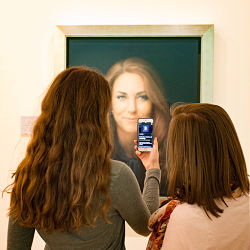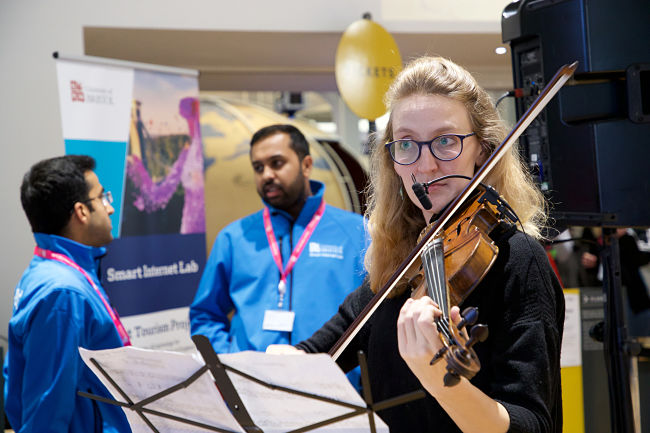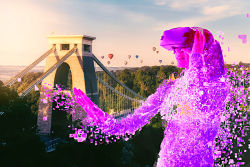Orchestrating the orchestra
The University of Bristol’s Smart Internet Lab invited audiences to experience a unique musical performance in Bristol’s ‘We The Curious’ Science Centre. The innovative performance connected three musicians across Bristol and London over a 5G network to deliver a fully synchronised music concert.
 5G Smart Futures
5G Smart Futures
A day of demonstrations and discussions on Saturday, 16th March 2019 that celebrated the creative and economic potential of the power of 5G.
The event, took place on Saturday 16th March 2019 at 15.30 at Bristol’s ‘We the Curious’ Science museum, as part of the ‘5G Smart Futures’ a day of demonstrations and discussions that celebrate the creative and economic potential of the power of 5G.
Audiences had the unique opportunity to immerse themselves in the world of 5G and experience a three-way distributed music performance showcasing the potential of ultra low-latency, high bandwidth and full synchronization delivered over 5G networks.

This demonstration is an output of the UK Government’s Department for Digital, Culture, Media and Sport (DCMS) ‘5GUK Testbeds and Trials Programme’ (Phase 1) funded project, ‘5G Smart Tourism’.
But what we mean by ‘orchestrating the orchestra’?
Researchers at the Smart Internet Lab have been working on the creation of a novel and intelligent technology platform which enables automated composition of services across multiple 5G domains. This breakthrough solution, called a Network Orchestrator, will allow mobile operators (i.e. EE, Vodafone, Three etc) to provide highly synchronized and low latency services across their networks. This showcase tested, for the first time, the performance of the Orchestrator through the delivery of music performed by remotely located musicians. The audience's experience was exactly the same as if the musicians were performing in the same venue.Professor Dimitra Simeonidou, Director of the Smart Internet Lab said “We are very happy to work with our partners in London to deliver for the first time a three-way concert across 5G networks. This showcase has demonstrated how key 5G technology innovation carried out in our labs at University of Bristol can revolutionise cultural experiences in new and unexpected ways. The event has given us a glimpse on exciting Digital Futures”
Dritan Kaleshi, Head of Technology - 5G at Digital Catapult, said: “The live, simultaneous performance of these artists using the 5G network is an ideal demonstration of the ability that 5G will have on transforming cultural and artistic experiences for audiences around the country. The performance represents momentous change and the team at Digital Catapult are proud to be playing a key role in making it happen.”
Professor Mischa Dohler, Chair Professor, Dept of Informatics, King’s College London said: “We are delighted to be part of this exciting and pioneering 5G usecase focused on tourism. Over the past months, we have been working on an advanced virtualised infrastructure which allows for a flexible and cost-efficient deployment and use of 5G’s advanced Internet capabilities. As a result, we are able to demonstrate the “virtualisation” of musicians where a tourist concert takes place in Bristol with the “missing music talent” being brought in from London. The demonstrated three-way engagement is made possible by 5G due to its ultra-low latency and high-bandwidth capabilities, and is indeed the world’s first.”

_opt.png)
